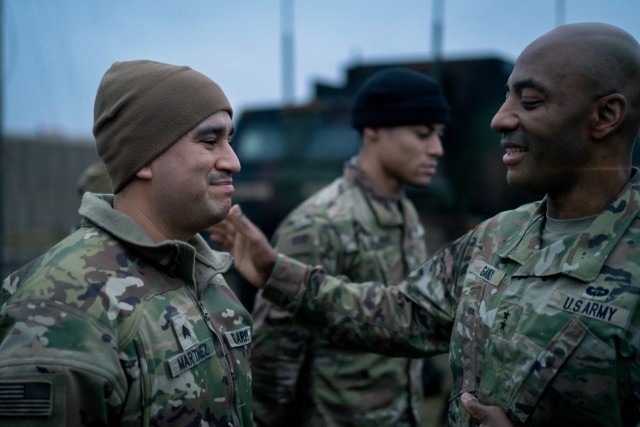
WASHINGTON — The Army and the joint force must help reduce the stress of heavily tasked Soldiers in air and missile defense formations, an Army leader told lawmakers on Dec. 7.
The Joint Integrated Air and Missile Defense force has taken increased importance in ongoing combat operations, said Maj. Gen. Sean Gainey, director of the Joint Counter-Unmanned Aircraft Systems Office and director of fires, Office of the Deputy Chief of Staff for Operations, Planning and Training. U.S. Army air and missile defense deployments worldwide have greatly impacted Soldiers and their families, he said.
“We’ve asked a lot of our air and missile defense formations, and in every instance, they have responded to every call,” Gainey said to the House Armed Services Committee’s subcommittee on strategic forces. “The cost has been decreased time [at] home. It’s having a strain on the force. Army leadership recognizes that strain. And the Joint Staff and [Army] leadership has looked at reducing demand.”
Brig Gen. Clair Gill, Joint Staff deputy director for regional operations and force management, said missile-related threats have rapidly expanded and grown in sophistication, maneuverability and lethality, placing more stress on Soldiers and troops in other branches.
Nearly all Soldiers in air defense units have exceeded the Secretary of Defense requirement of remaining home for a minimum of two years following a one-year deployment, Gainey added.
Gainey said that the Army shares the responsibility of integrated missile defense with other services. He said to alleviate the burden placed on Soldiers, the Army has been working closely with sailors assigned to the Navy’s Aegis Ballistic Missile Defense System and troops in the Air Force counter-air operations program. Soldiers have also worked closely towards integration with allied nations during mass exercises.
“This additive capability, and its associated force structure is designed not only to defeat the threat, but to minimize the impact on Soldiers and their families,” said Gainey, who the Senate recently appointed to the rank of lieutenant general and will become commander of the Army Space and Missile Defense Command in Redstone Arsenal, Alabama.
Gainey asked for the help of lawmakers to assure funding for construction of facilities and quality of life initiatives for air and missile defense Soldiers, including those assigned to the defense of Guam.
“Support to the quality of life programs will also be a critical part to continue the improvement in getting after the health of force initiatives,” Gainey said. “The Air and Missile Defense formations are the most deployed formations in the Army. And several times those systems are deployed early into an environment, the quality of life facilities aren’t in place for the Soldiers.”
Soldiers and sailors have been building the defense infrastructure of Guam, a strategic location for U.S. forces in the Pacific that could be pivotal in future conflicts. Soldiers assigned there not only have limited services and facilities but must also contend with geographical challenges such as typhoons.
Gainey said the military and government must act now to lessen the burden on missile defense Soldiers and their families. Families must endure long periods of separation when Soldiers frequently deploy.
“The importance of the work that our air and missile defense Soldiers do each and every day in support of the Army, and the nation cannot be overstated,” Gainey said. “And I want to thank you for your continued support to them and their families. Our Army’s contribution to defeat the wide range of evolving threats continues to improve in both capability and capacity as we build towards the future Army.”
By Joe Lacdan, Army News Service

